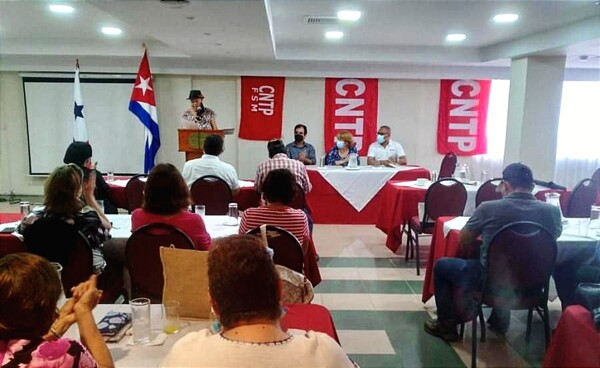The implementation of the 5G network in Panama has generated concern in the medical field, to the point that Dr. Marta Roa warned about the risks this technology poses to human health and the environment. Roa pointed out that there are hundreds of scientific studies without conflicts of interest worldwide confirming the harmfulness of electromagnetic fields from 5G for humans and the environment. These effects can manifest both in the short and long term, according to the expert.
Dr. Roa alerted about possible adverse effects of 5G technology, such as headaches, insomnia, cancer, autoimmune diseases, strokes, thrombosis, and suppression of the immune system. In Panama, some of these effects have already been felt, such as sleep problems and electrical conductivity issues in the human body. The doctor proposed to resume the use of 3G and 4G technology with fiber optics, considering them functional and safe options for health.
Additionally, Roa questioned the necessity of 5G technology, stating that it does not offer a substantial improvement compared to previous generations and is unnecessary and dangerous. She highlighted that there are sectors of the population especially vulnerable to the effects of this technology, such as people with chronic diseases, children, pregnant women, the elderly, and those living near the antennas.
Organizations like the World Health Organization (WHO) and the International Commission on Non-Ionizing Radiation Protection (ICNIRP) have assured that the waves used in 5G networks remain within safety limits. However, they recognize the lack of long-term studies that can clarify the total impact on human health, which has prompted some specialists to call for the application of the "precautionary principle" until conclusive research is available.
In addition to health concerns, critics point out that the infrastructure necessary for 5G could have a significant impact on the environment due to the increased energy consumption and the generation of electronic waste. The controversy resurfaced after the telecommunications company Cable and Wireless announced the start of the 5G network in Panama, although in an initial phase and with limited coverage.
In this context, a group of prestigious Panamanian professionals, including lawyers such as Silvio Guerra, Francisco Carreira, Jackeline Prosb, Deyanira Vergara, Nilo Gonzalez, and doctors like Jose Trinidad Castillero, Guillermo Arana, Humberto Torres, Luis Pretto, Rafael Pretti, have drafted a letter addressed to MINSA, MiAMBIENTE, ASEP, and AIG expressing their concern about the possible negative effects of 5G technology on the health of the Panamanian population.













